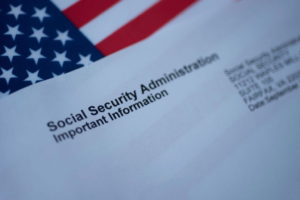
Austin Noncompete Attorney Gregory D. Jordan Remarks on Texas Court’s Rejection of Injunction Request
Jan 31, 2014
Austin, TX (Law Firm Newswire) January 31, 2014 – An error in a noncompete agreement led a Texas court to reject an injunction request.
The Fourteenth Court of Appeals ruled that LasikPlus of Texas could not enforce a covenant not to compete against a doctor, formerly employed by the clinic, who planned to open his own practice nearby. They stated that the noncompete agreement did not include language required by statute.
“The court’s decision is a reminder that covenants not to compete must be drafted with precision,” said Gregory D. Jordan, an Austin business attorney and Austin employment lawyer who often deals with noncompete agreements. “At a minimum, a noncompete agreement involving medical personnel must include the language required by statute.”
The noncompete agreement at issue barred the doctor from opening a competing practice within 20 miles of the LasikPlus clinic in Houston and from soliciting its clients for 18 months following the end of his employment. The covenant expressly provided for an injunction to be issued if it was violated, and it contained language stating that if a court found the agreement to be unreasonable in scope, it could enforce it to the degree that would be reasonable.
However, the agreement failed to include language required by the Texas Covenants Not to Compete Act, which provides that such covenants relating to the practice of medicine must include a buyout provision. Because the agreement in question contained no such provision, the court ruled that it was unenforceable.
LasikPlus conceded that the noncompete agreement did not contain the buyout language that the statute required, but the company argued, among other things, that the trial court should have reformed the covenant to make it enforceable (because of the language permitting the court to revise the covenant if it was found to be unreasonable). However, the court of appeals rejected this argument because it found that the covenant was not unreasonable, but rather unenforceable, as a matter of law.
LasikPlus also argued that there was a mutual mistake with regard to the drafting of the agreement. However, the court noted that there was an uncontroverted affidavit by the doctor in evidence stating that he raised the possibility of a buyout, and LasikPlus rejected it.
To learn more, visit http://www.theaustintriallawyer.com/
Law Offices of Gregory D. Jordan
5608 Parkcrest Drive, Suite 310
Austin, Texas 78731
Call: 512-419-0684
- Exxon Seeks to End Oil and Gas Royalty Dispute
Exxon Mobil Corporation has filed a brief asking the Texas Supreme Court to reject a new trial for a group of oil and gas royalty owners who say that the company gave them false information regarding the performance of their wells. According to the potential plaintiffs, that information allegedly induced them to take a disadvantageous […] - Austin’s Torchy’s Tacos Sues Competitor Over Alleged Theft of Trade Secrets
Torchy’s Tacos, an Austin-based chain of 20 restaurants, has filed a lawsuit against Houston-based Texas Taco Co. claiming that the smaller chain stole its recipes and duplicated its menu items. Torchy’s, with restaurants in Austin, Houston and Dallas-Ft. Worth, claims that Texas Taco, a chain of three stores, used Torchy’s “Taco Bible” to create a […] - J.P. Morgan Accused of Double-Leasing Oil Land
J.P. Morgan has been sued over the alleged double-leasing of oil property in south Texas. The lawsuit was filed by Orca Assets G.P. LLC in U.S. District Court in Dallas, alleging negligent misrepresentation and fraud. Orca, a small, Houston-based energy company, is suing the country’s largest bank by assets, claiming that J.P. Morgan leased property […]




